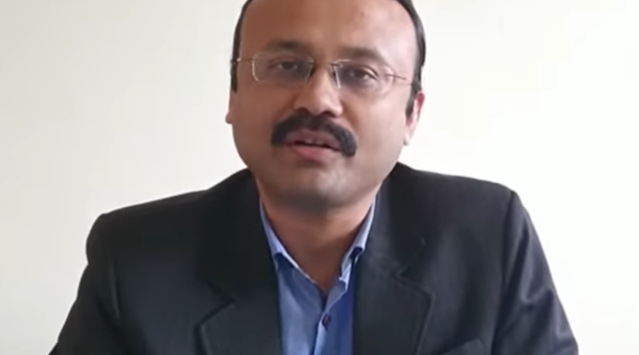Srinagar June 7
Dr. Gaurav Gandhi, a highly respected cardiologist from Jamnagar, Gujarat, tragically passed away at the age of 41 due to a suspected cardiac arrest. His sudden death has raised concerns about heart attacks among young people in India, especially because he exhibited no symptoms or traditional risk factors associated with such an event.
Dr. Gandhi was known for his active lifestyle, working approximately 14 hours a day, being a non-smoker, and abstaining from alcohol. There was no medical history or recent infections, including COVID-19, that could have indicated his vulnerability to a cardiac event.
Dr. Gandhi had been working as a contractual assistant professor at MP Shah Government Medical College, teaching cardiology and providing care to both outpatients and critical patients at the hospital. Additionally, he was associated with the private Sharda Hospital in Jamnagar.
According to Dr. Nandini Desai, the medical superintendent at GG General Hospital, Dr. Gandhi experienced chest discomfort around 2 am on June 6. He visited Sharda Hospital, where an electrocardiogram (ECG) was performed. Surprisingly, the ECG came back normal, leading him to believe that the discomfort was due to acidity. He received an injectable treatment for acidity and remained in the hospital for about half an hour to monitor any changes. Later, at around 6 am, his wife discovered him collapsed on the bathroom floor at home. Dr. Gandhi was immediately rushed to the emergency ward at GG Hospital, where he was put on a ventilator. However, despite efforts to resuscitate him for 45 minutes, he could not be revived. While clinically it is suspected to be a cardiac arrest, post-mortem results did not show immediate changes in the heart that could confirm the cause. The short interval between the onset of symptoms and his death might explain the lack of visible changes in the heart during the post-mortem examination.
The case of Dr. Gandhi raises several questions. Is it possible to have a heart attack even if an ECG reading is normal? The answer is yes. In about 20-30% of cases, the initial ECG may appear normal despite the occurrence of a heart attack. This is well-documented in medical literature. When there is a high suspicion of a heart attack, patients are typically observed for 12 to 24 hours, during which serial ECGs and cardiac enzyme tests are conducted to assess heart damage. Dr. Gandhi’s case, however, is considered atypical.
The discussion also touches upon the seriousness of hypertension (high blood pressure) and stress. Dr. Raghav Sharma, an interventional cardiologist, highlights that hypertension tends to affect Indians at an earlier age compared to Western populations. Unhealthy lifestyle factors, such as long working hours, poor diet, lack of exercise, and smoking, contribute to the higher prevalence of hypertension. Dr. Sharma emphasizes that stress and tension can elevate blood pressure, leading to complications such as stroke or heart failure. Managing stress through lifestyle changes and, if necessary, medication is crucial for preventing these adverse outcomes.
The article suggests that traditional risk factors, including monitoring blood pressure, cholesterol, lipids, and blood sugar, are important but may not be sufficient. Additional screening for specific conditions and triggers is recommended. It is advised to start checking blood pressure from the age of 25 and promptly seek medication and monitoring if hypertension is detected. Genetic disorders like familial hypercholesterolemia, characterized by high levels of LDL cholesterol, pose a higher risk of heart disease and mortality. Monitoring LDL cholesterol levels, maintaining a healthy diet, and considering lipid-lowering drug therapies like statins can help manage this condition effectively. Recognizing the signs of sudden cardiac arrest and undergoing a calcium score test after the age of 45.




